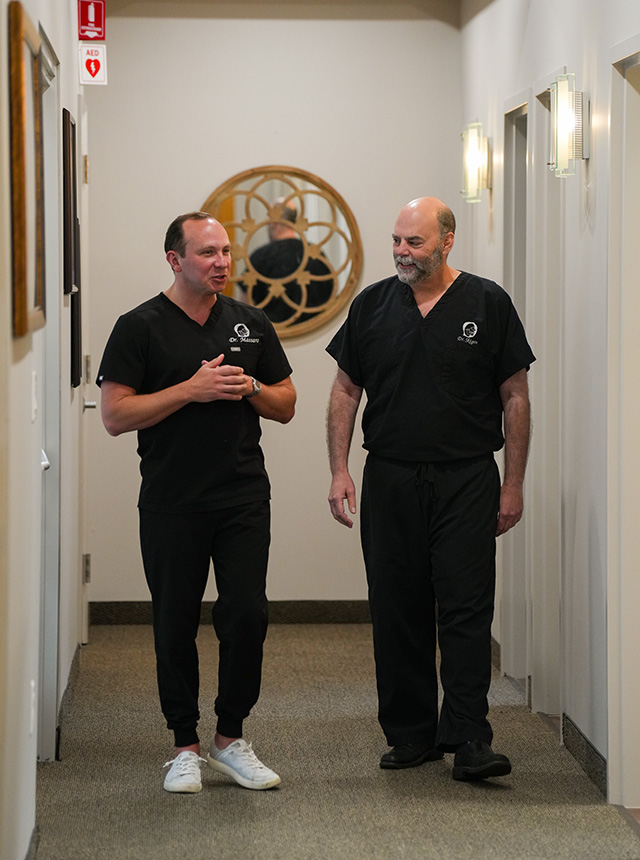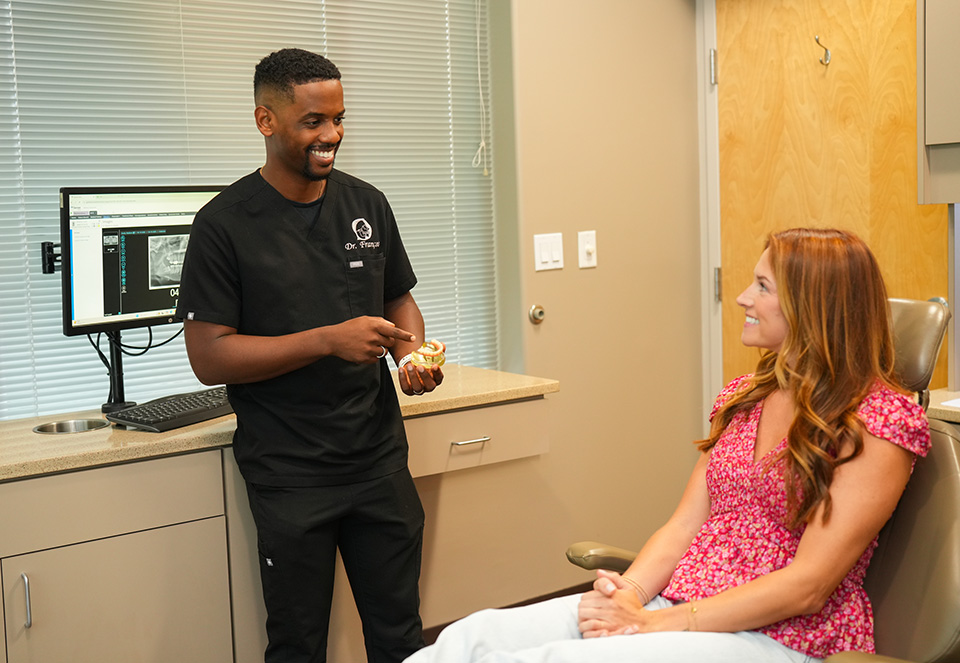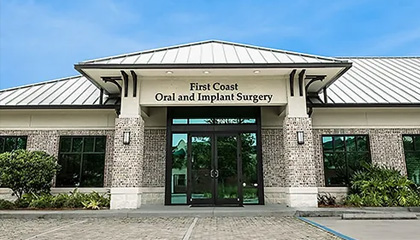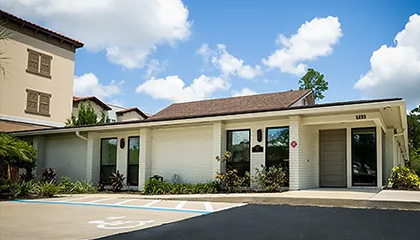Complex / Hospital Surgery

Advanced Surgical Care Beyond Routine Procedures
At First Coast Oral Surgery, our team of highly specialized surgeons provides exceptional care for complex oral and maxillofacial conditions that require advanced surgical intervention. With hospital privileges at leading medical facilities throughout Northeast Florida, we deliver comprehensive surgical solutions for even the most challenging cases.
Our Complex Surgical Specialties
Orthognathic Surgery
Orthognathic surgery corrects irregularities of the jaw bones and realigns the jaws and teeth to improve function and appearance. This specialized procedure addresses skeletal discrepancies that cause difficulty in chewing, talking, sleeping, or other routine activities.
Our orthognathic surgery expertise includes:
- Correction of severe overbite or underbite
- Treatment for facial asymmetry
- Management of obstructive sleep apnea
- TMJ disorder correction
- Congenital anomaly reconstruction
Each orthognathic case involves:
- Detailed 3D surgical planning
- Collaboration with orthodontists
- Virtual surgical simulation
- Custom surgical guides
- Comprehensive hospital care
Jaw Surgery
Our advanced jaw reconstruction techniques restore form and function after trauma, disease, or developmental issues. Using cutting-edge technology and surgical techniques, our surgeons can rebuild even the most complex jaw structures.
Our jaw surgery services include:
- Reconstruction after trauma
- Temporomandibular joint (TMJ) surgery
- Correction of growth abnormalities
- Management of pathologic conditions
- Jaw realignment for facial harmony
Head and Neck Cancer
Our surgeons are specially trained in the surgical management of oral and maxillofacial cancers. Working as part of a multidisciplinary team with oncologists and radiation specialists, we provide comprehensive care from diagnosis through reconstruction.
Our head and neck cancer services include:
- Oral cancer screening and biopsy
- Tumor removal with preservation of form and function
- Neck dissection when indicated
- Microvascular reconstruction
- Coordination with radiation and chemotherapy teams
- Long-term follow-up care
Advanced / Complex Facial Surgery
Our team specializes in both the functional and aesthetic aspects of facial surgery, providing patients with natural-looking results that enhance both appearance and quality of life.
Our facial surgery procedures include:
- Facial trauma reconstruction
- Facial asymmetry correction
- Orthognathic surgery with cosmetic refinements
- Chin and jaw enhancement
- Management of congenital facial differences
Facial Trauma
Our surgeons provide 24/7 emergency care for facial traumas at regional hospitals. With specialized training in facial reconstruction, we restore both function and appearance following injury.
Our facial trauma expertise includes:
- Fractured jaw management
- Orbital (eye socket) reconstruction
- Nasal fracture repair
- Soft tissue injury repair
- Post-traumatic deformity correction
TMJ and Facial Pain
Our comprehensive approach to temporomandibular joint disorders combines diagnostic precision with targeted interventions ranging from conservative therapy to advanced surgical techniques.
Our TMJ services include:
- Advanced diagnostic imaging
- Non-surgical management options
- Arthroscopic TMJ procedures
- Open joint surgery when necessary
- Post-surgical rehabilitation
Hospital Affiliations
Our surgeons maintain privileges at leading hospitals throughout Northeast Florida, including:
- Baptist Medical Center (Downtown and South)
- Wolfson Children’s Hospital
- Additional regional surgical centers
Why Choose First Coast Oral Surgery for Complex Procedures
- Fellowship-Trained Surgeons: Our specialists have completed additional training beyond standard requirements
- Multidisciplinary Approach: Collaboration with other medical specialists for comprehensive care
- Hospital-Based Surgery: Access to advanced facilities for complex procedures
- Cutting-Edge Technology: State-of-the-art surgical planning and intraoperative navigation
- Continuity of Care: Seamless transition from hospital to outpatient follow-up
Your Hospital Surgical Experience
When complex surgery is recommended, our team will:
- Provide Comprehensive Consultation: Detailed explanation of your condition and surgical options
- Coordinate Hospital Arrangements: Our staff handles scheduling and pre-admission requirements
- Perform Advanced Surgical Planning: Using 3D modeling and virtual surgical planning for optimal outcomes
- Deliver Expert Surgical Care: Hospital-based procedures with specialized anesthesia teams
- Ensure Thorough Follow-Up: Transitional care from hospital to home with ongoing monitoring
Insurance and Financial Considerations
Our team understands the complexities of insurance coverage for hospital-based procedures. Our insurance specialists will work directly with your provider to maximize your benefits and explain all financial aspects before treatment begins.






